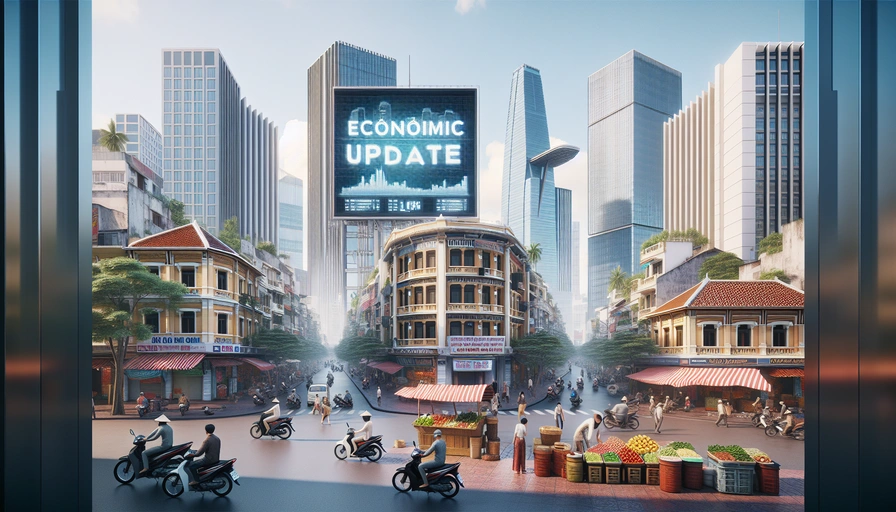In the past 24 hours, several significant events have unfolded in Vietnam, each with potential implications for the country’s economy. Among these, the strong rebound of the Vietnam stock market, the investigation into CP Vietnam for alleged diseased pork sales, and the expansion of social insurance coverage stand out as particularly impactful. These developments not only reflect the current economic climate but also hint at future trends and challenges that Vietnam may face.
Vietnam Stock Market Rebounds Strongly in May 2025
The Vietnam stock market has shown a remarkable recovery in May 2025, rebounding strongly after a tariff shock. This resurgence is evidenced by the VN-Index posting four weeks of gains, surpassing 1,330 points. Such a rebound is crucial as it reflects investor confidence and the resilience of the Vietnamese economy amidst global economic uncertainties. The stock market’s performance is often a barometer of economic health, influencing both domestic and foreign investment. A strong stock market can lead to increased capital inflows, supporting business expansion and job creation. This recovery could also signal a stabilization in trade relations, which is vital for Vietnam’s export-driven economy.
CP Vietnam Under Investigation for Alleged Diseased Pork Sales
The investigation into CP Vietnam for alleged sales of diseased pork is a significant concern for the country’s agricultural sector. As a major player in Vietnam’s pork industry, any negative findings could have widespread implications, affecting consumer confidence and export potential. The agricultural sector is a cornerstone of Vietnam’s economy, and issues of food safety can lead to stricter regulations and potential trade barriers. This investigation highlights the need for stringent quality control measures and transparency in food production, which are essential for maintaining Vietnam’s reputation as a reliable food exporter.
Vietnam Expands Social Insurance Coverage
Vietnam’s decision to expand social insurance coverage to regions like Dak Lak and Phu Yen marks a significant step towards social welfare improvement. This expansion is expected to enhance the social safety net, providing more citizens with access to essential services such as healthcare and pensions. By broadening social insurance, the government aims to reduce poverty and inequality, fostering a more inclusive economy. This move could also stimulate domestic consumption, as individuals with social security are more likely to spend, thereby boosting economic growth. Moreover, it aligns with Vietnam’s long-term goal of sustainable development and social stability.
In conclusion, these developments reflect Vietnam’s dynamic economic landscape, characterized by resilience, challenges, and proactive policy measures. The stock market’s recovery, the scrutiny of food safety practices, and the expansion of social insurance coverage are all indicative of Vietnam’s efforts to navigate economic complexities while striving for growth and stability. As these stories unfold, they will undoubtedly shape the future trajectory of Vietnam’s economy.

